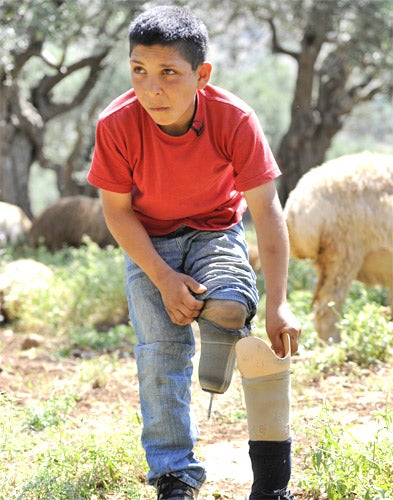Banks trusted to regulate their own investments in arms industry

British banks will be left to regulate their own investments in the arms industry despite calls to close a loophole which has allowed major financial institutions – including the state-owned Royal Bank of Scotland – to give financial aid to companies that manufacture cluster bombs.
Although Britain banned cluster bombs when it signed up to the Convention on Cluster Munitions, a loophole allows banks to continue investing in companies that manufacture such weapons as long as they do not invest directly in the bombs themselves.
Yesterday The Independent revealed that RBS, which is 83 per cent owned by the taxpayer, has invested more than $190m (£115m) in Alliant Techsystems and Lockheed Martin, two companies that are named by arms charities as manufacturing cluster munitions and their key components.
HSBC and Barclays have also invested tens of millions of pounds in cluster-bomb manufacturers – including in the American arms giant Textron, the manufacturer of a 1,000lb cluster bomb known as the Sensor Fused Weapon. Alliant Techsystems makes the rocket motor for the same bomb.
Arms campaigners are hoping that the Government will close the loophole. Yesterday the Deputy Prime Minister, Nick Clegg, told The Independent that he was "totally opposed to cluster bombs of any description."
But government sources last night signalled that it would be left up to the banks themselves to regulate investments, with little appetite to bring in legislation specifically banning indirect investments in cluster-bomb manufacturers.
"The issue of indirect financing is for individual institutions to consider," a No 10 spokesperson said. "We as a government have made it very clear that direct financing of cluster munitions is illegal. We would encourage NGOs to come together and engage with the banks to find a mutually agreeable approach to indirect financing."
YouGov polling has found strong backing amongst the public for regulation of the banking industry's investments in cluster bombs. In a survey of 2,700 people published yesterday and commissioned by Amnesty International, more than two-thirds of respondents (67 per cent) say they would support a law to ban any investment in companies that produce cluster bombs. Seventy-eight per cent said state-owned RBS should not be allowed to provide loans to cluster-munitions producing companies.
Since the publication of the banking industry's involvement in cluster-bomb manufacturers both HSBC and Barclays have begun to distance themselves from carrying out any new deals in the future. RBS, however, is adamant that Alliant and Lockheed are not cluster-bomb manufacturers and says it has received assurances from both companies to that effect.
Public records – including the companies' own websites and brochures – have previously stated that both manufacturers have made cluster bombs and retain the capacity to do so. Moreover, neither company has yet publicly to announce that they have fully abandoned cluster munitions.
The Independent asked RBS yesterday whether it was happy with the assurances it had received from Alliant and Lockheed and asked whether the bank had any plans to review their relationship with the two companies.
"Our lending policy is guided by the Oslo Convention so we do not lend to the manufacturers of cluster bombs," a spokesman insisted. "As you would expect we can't comment on individual clients but I can confirm again that our defence-sector clients have assured us that their activities are not in breach of the Convention."
The position of RBS and other high-street banks is in stark contrast to the Co-operative Bank which has taken steps to ensure that it does not invest in any company that manufactures cluster munitions or key components. All business customers who wish bank with the Co-operative have to complete an ethical questionnaire which is then reviewed against the bank's own policies. It has been hailed by arms campaigners as an example of ethical financing that other high street banks should emulate.
Case studies...
Walk cost boy, 10, his leg
Mohammad Abd el Aal
Mohammad was walking his goats along a mountain track in southern Lebanon when he stepped on one of the four million bomblets that were dropped by Israel in 2006. The device exploded and Mohammad, then aged 10, lost his left leg and suffered major damage to his other leg and arm. He spent 25 days in hospital as surgeons battled to save his life from horrific injuries. Now 12, he is learning to get around with the help of a prosthetic limb. Up to half of submunitions dropped by Israel fail to detonate on impact. In the past five years more than 50 people have been killed and 400 injured by unexploded bombs.
Mutilated by British bombs
Abdullah Qadoos
Six-year-old Abdullah Qadoos was hit by cluster bombs fired by the British Army as they took the Iraqi city of Basra in March 2003. Shrapnel smashed through the window of his home, cut off his arm and tore open his abdomen. The UK fired 98,000 Israeli-manufactured M85 submunitions in and around Basra, many of which failed to detonate. At the time the British Government openly defended the use of cluster munitions. But last year cluster bombs were banned and are now no longer used by the British military.
Join our commenting forum
Join thought-provoking conversations, follow other Independent readers and see their replies
Comments